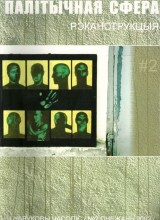
We kindly inform you that, as long as the subject affiliation of our 300.000+ articles is in progress, you might get unsufficient or no results on your third level or second level search. In this case, please broaden your search criteria.

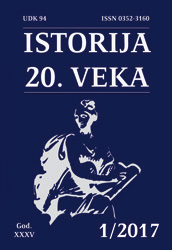
This paper deals with meaning and use of scientific notion of historical-typological analogy. Afterwards, we point out an international character of the conflict on the literary left, emphasizing parallelisms between American and Yugoslav journal scenes. This analysis elucidates structural relationships between two cultures, as well as differences between two historical situations.
More...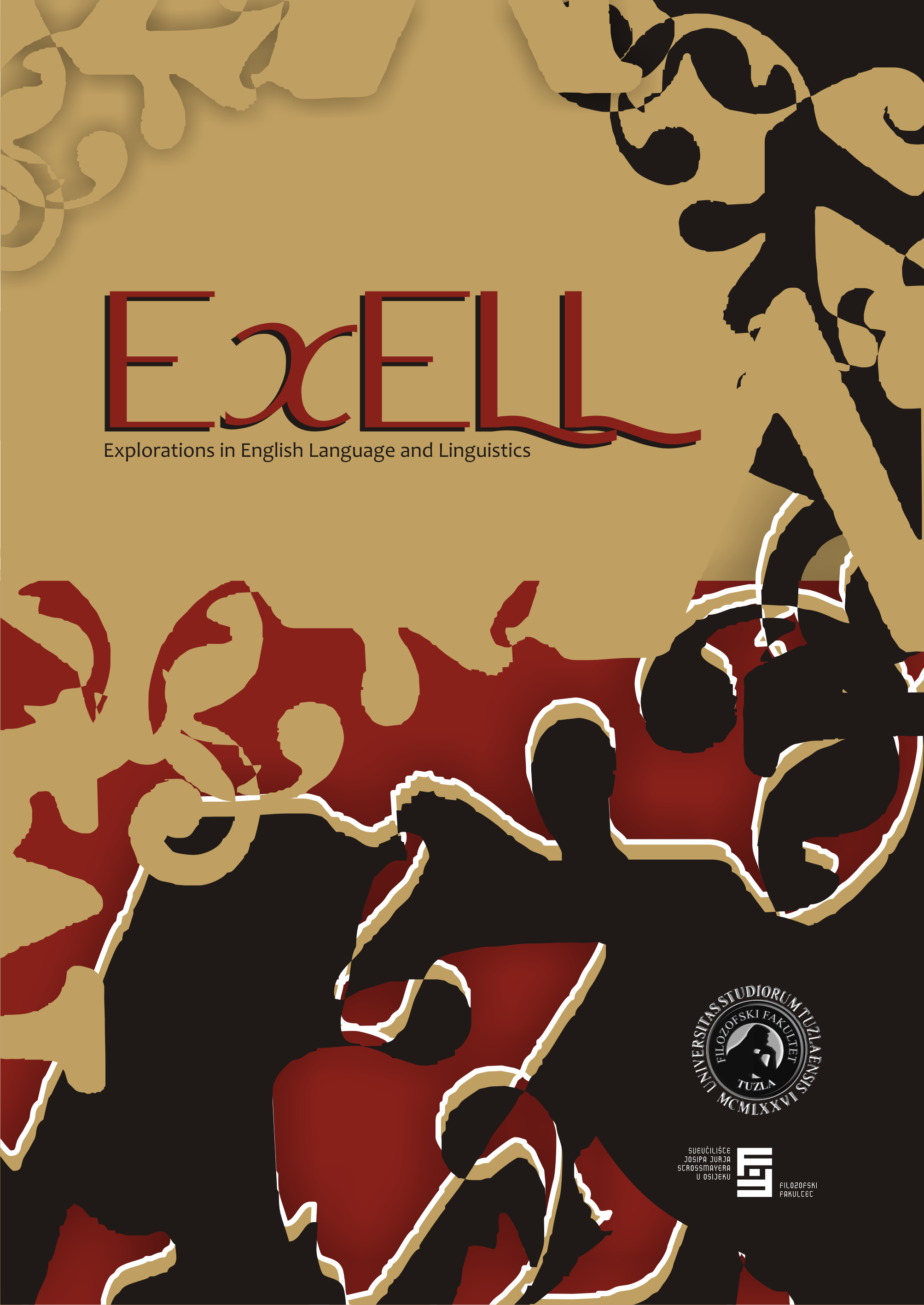
The aim of this paper is to view double negation in the light of its semantic and pragmatic meaning. While double negation in logic gives a positive value, in natural languages, besides having positive entailment, it can have a range of different implicatures and functions. Thus, depending on different discoursal factors, double negation can be used for different motives, e.g. the speaker is not sure whether a certain proposition is true or is sure that it is not true, to name just one. The analysis is carried out on the database consisting of the reports, interviews and articles of the High Representative and his associates in Bosnia and Herzegovina in the period from 1995 to 2001.
More...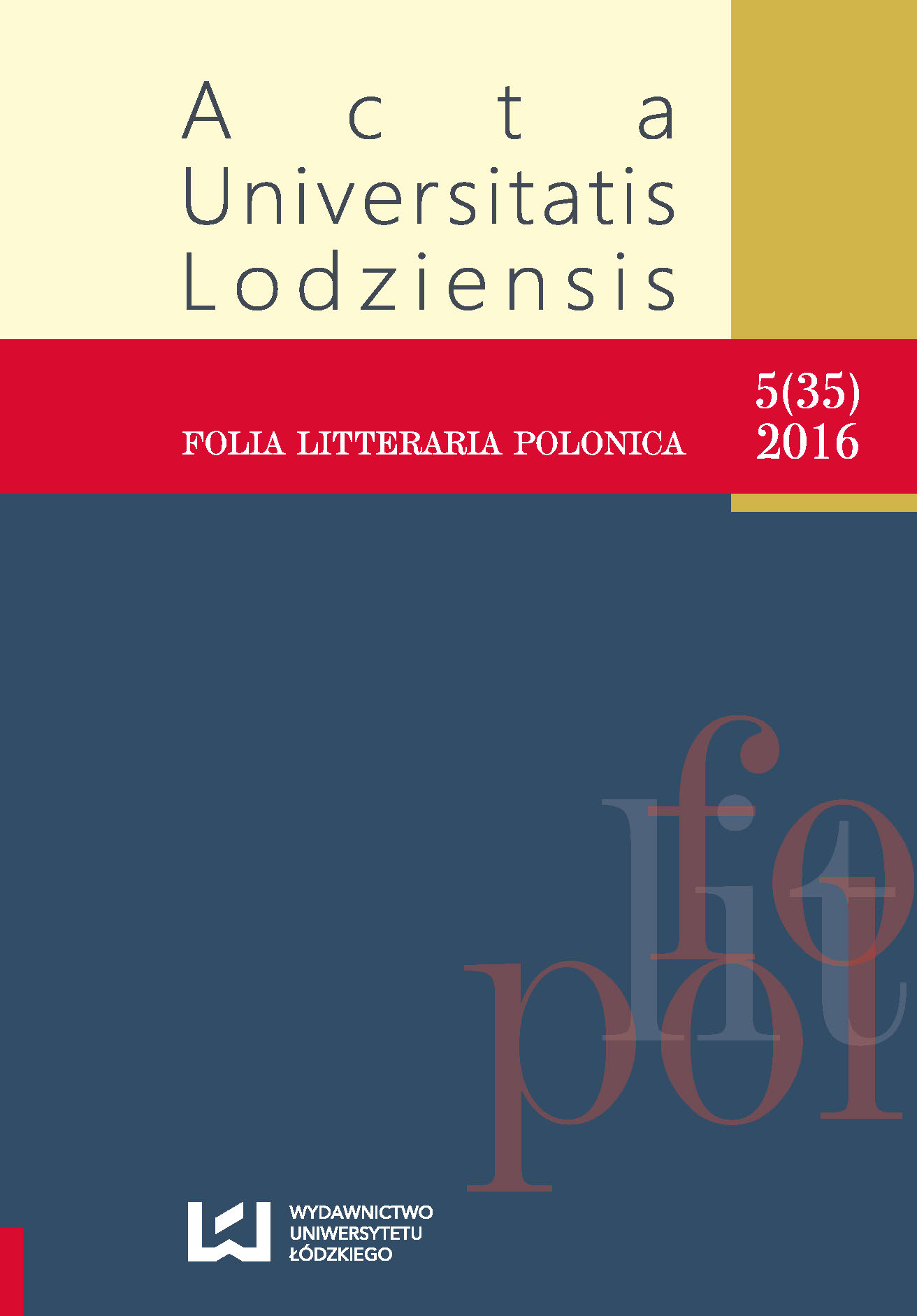
This article is an attempt to seek answers to the question of whether so-called hate speech in the media constitutes a reporting of facts and reflects real social and cultural life or pursues other aims, for example: the persuasive and manipulative creation of a desired reality innate in the functioning of a commercial and persuasive media. The author attempts from the axiological perspective of the media, as well as from the semiological and linguistic perspectives, to answer the question of what the role of media language is in shaping and promoting real attitudes of hostility and hatred, and conversely, how cultural and media tendencies shape hate speech in the media. The author does not analyse the material aspect of language, but rather tries to look critically at certain trends shaping new forms of media language that bear negative values.
More...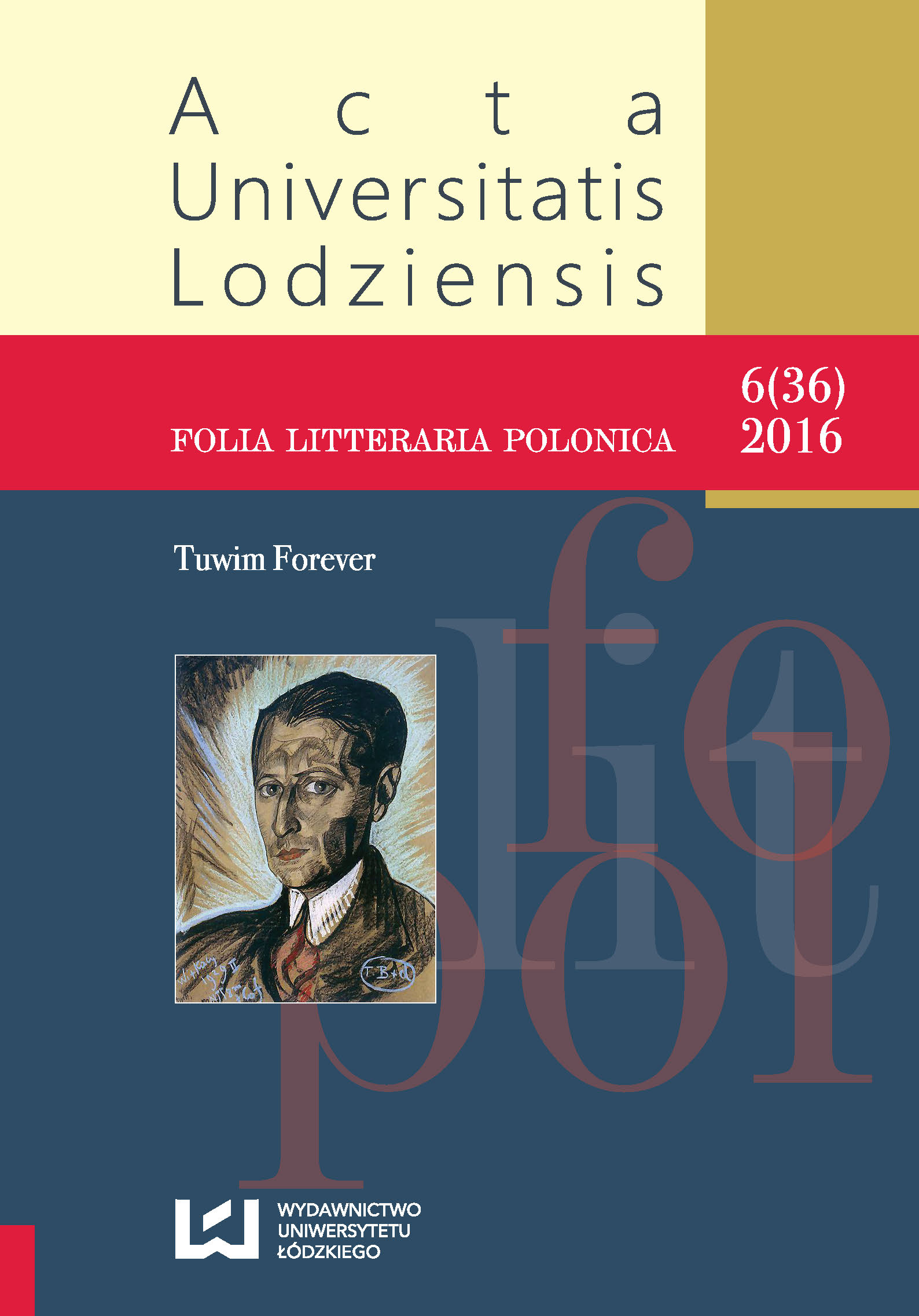
The article presents both the formal aspects of the poetics of Tuwim’s pamphlets (enumeration, hyperbole, grotesque, irony) and the figures of those who are the targets of his satirical addresses. Tuwim used verse satires to create polemical and ironic portraits of individual people (the main figure being a nationalist journalist and literary critic Stanisław Pieńkowski) as well as to ridicule state institutions, ideologies and political parties. The author also analyses pamphlet-like lyrical poems, columns and literary criticism by Julian Tuwim. In conclusion the author describes some elements of the cultural milieu which the poet refers to in his satirical writing (popular culture and the media, totalitarian ideologies, mass-society).
More...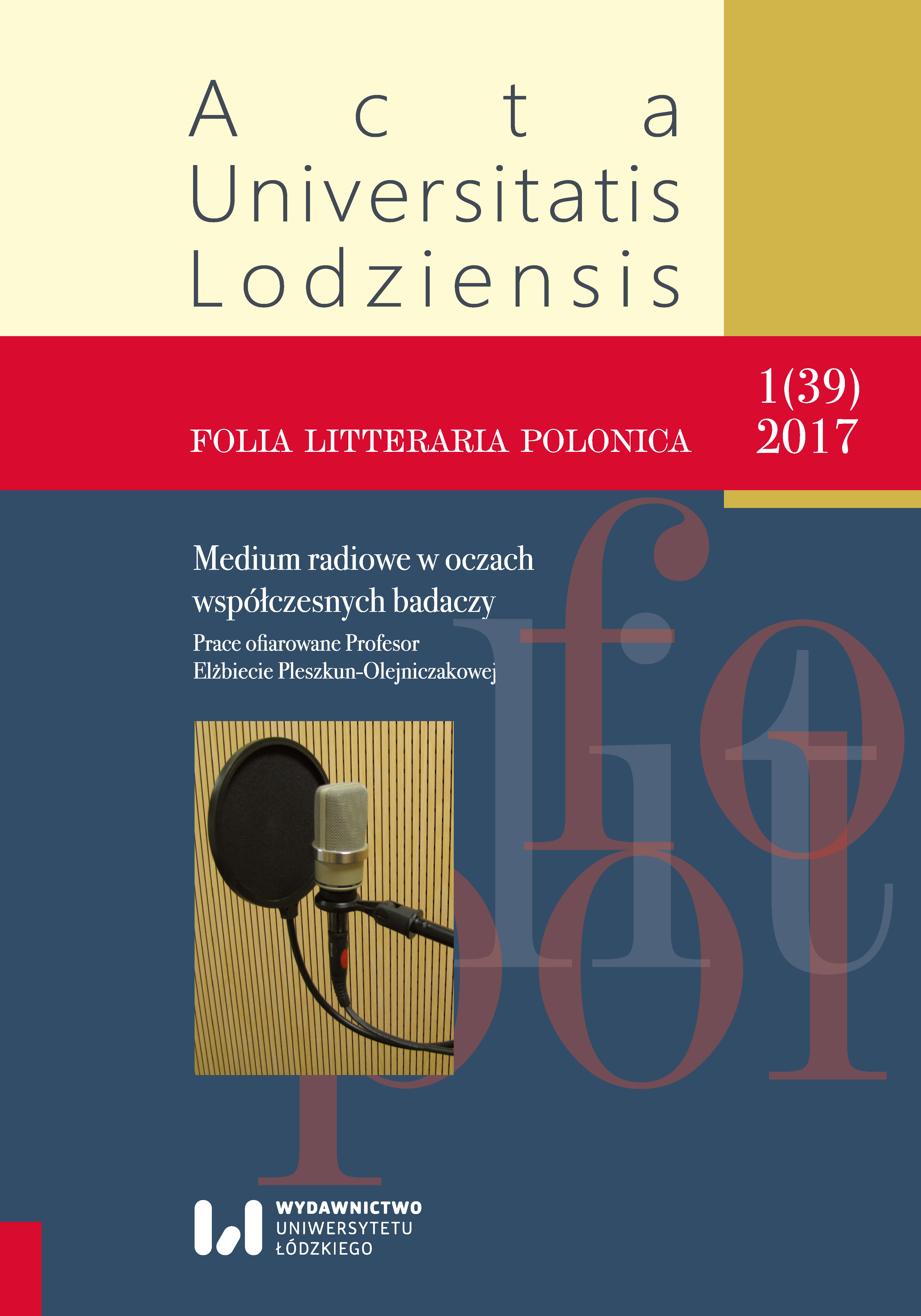
The aim of the article is to discuss one of the best known journalistic genres – the interview [in its oral form], with particular attention on one of its varieties, i.e. the personal interview. To illustrate this, I have used selected editions of the programme “Biuro Myśli Znalezionych”, broadcast on Program 3 Polish Radio. In considering this, I begin from dialogue as a form of expression which I treat as synonymous to a conversation. The interview, as one of the bases for the conduct of dialogue in the media, rests on the derivative realisation of mechanisms of dialogic interaction as well as of structures of exchange. I also draw attention to the fact that in certain situations the personal interview can constitute a kind of bridge between radio PR and artistic forms and be the starting point for radio documentary.
More...
In accordance with the Act on radiophony and television a public broadcaster, such as the regional broadcasters of Polish Radio, is required to fulfil the so-called public mission. One important element of the programme which fulfilling this mission entails is the news bulletin. News bulletins emitted on Polish Radio Olsztyn in selected weeks of 2015 and 2016 are analysed. From this analysis, it emerges that particular attention is paid to this element of the programming in Radio Olsztyn. This is testified to both by the frequency with which bulletins are broadcast – as much as 28 times a day on weekdays, or the number of news items in each bulletin and their wide-ranging character, as well as the large number of journalists involved in the preparation of this scheduled item, the network of correspondents and local studios in Elbląg and Ełk. The radio station is an important source of regional and local information. However, although the method of preparing the information for the bulletins may be described as easy on the ear, their choice is typified by a high degree of conventionalisation.
More...
Shortly after its invention, radio began to be used for political broadcasting with an international range. It was used to exercise power at a distance, sending messages to overseas diplomatic outposts or colonial territories. In the inter-war period it became an instrument of propaganda, and during the II World War the countries engaged in the conflict began to broadcast propaganda to listeners abroad, trying to bring them to their way of thinking. Simultaneously, you could observe a change in the approach to the international use of radio. It was regarded that radio programmes didn’t have to be used for disinformation and manipulating foreign listeners, but that it could aid in building a positive image of a given country, by basing the messages on genuine information and presenting the country’s cultural attractions, as well as cultivating a positive opinion among among listeners abroad. In consequence the stations and programmes that emerged and which utilised soft power – in international communications, which was the impulse behind the development of a new public diplomacy treating the recipient of the message – the overseas public – as the object of the communicative process.
More...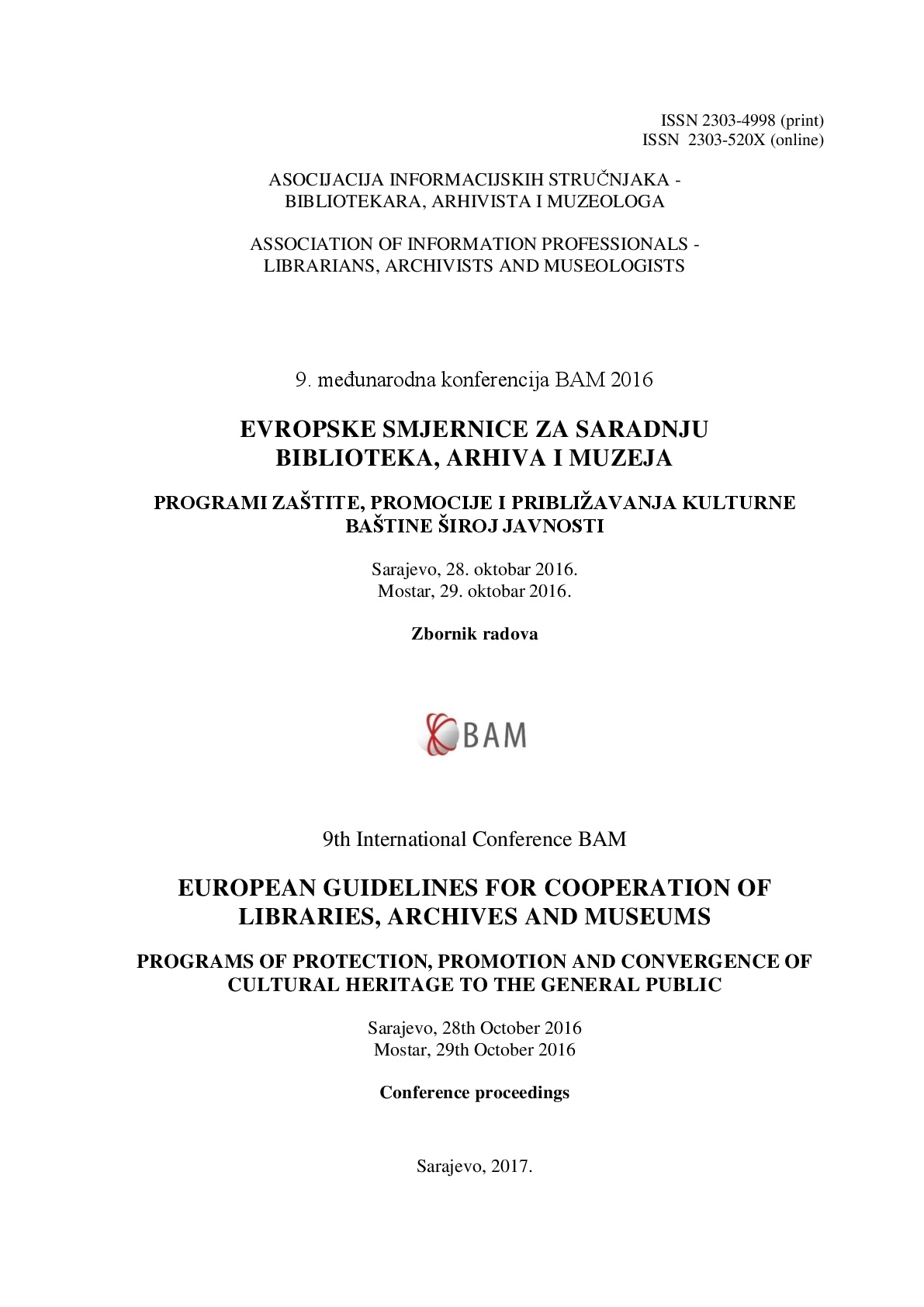
Among the general population there is often a misconception that museums are boring places, and that anyone who is interested in the legacy from the past is automatically the protagonist of non-progressive, and even chauvinistic views. The reality is far different and naturally the question is not only why this is so, but how to break these prejudices, and how to change the "picture of the world" that the museum represents and get it closer to the public. Why is it important that a museum of the 21st century is not a sanctuary, but a significant, critical actor in the society? How to responsibly manage collections in that direction? Which model is theoretically acceptable for establishing a framework for pro-active heritage operations? These are just some of the questions that we will try to answer in this paper. In this regard, were going to explore the changing role of the museum object in the "museum without walls" and those without a subject, the importance of the research, interpretation, questioning context and, finally, the exhibition presentation. Following the historical development of the collection, we will try to figure out how to stimulate visitors to come to the museum and more importantly - how to motivate them to become a loyal audience that comes back. In this regard, emphasis will be placed on the benefits that museums have from the local community involvement, as well as the opportunities that this kind of activism brings to the citizens.
More...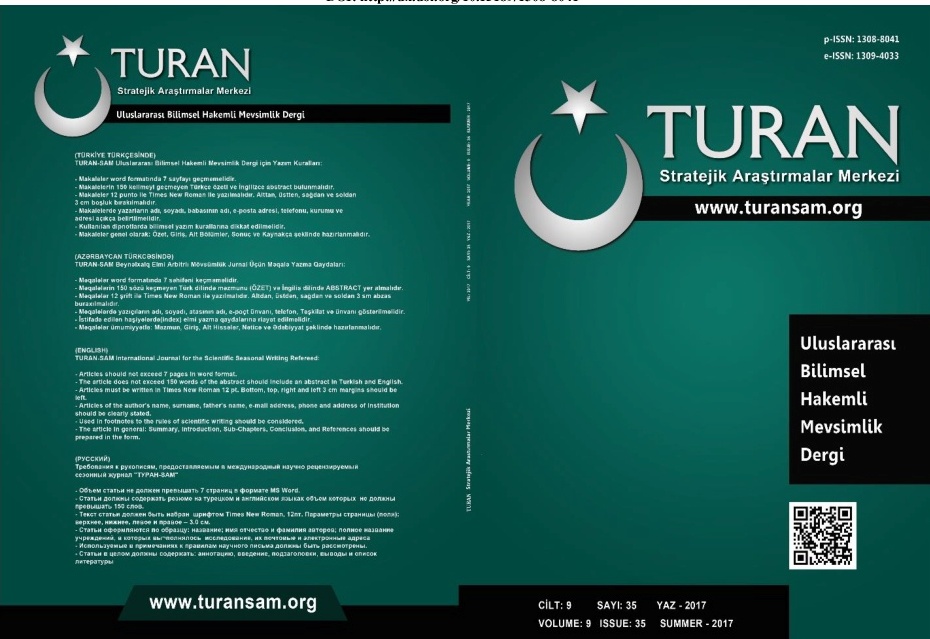
In elections that determine who the country the country is headed by, the voting behavior for candidates or parties who aspire to management is vital. Within the framework of political communication, election promises are the most important instrument that the candidates or parties refers to political campaigns in order to persuade voters to vote in their favor during elections. In this study, it was investigated the effect on the voting behavior of election promises which are important part of political campaigns. And in this context, Donal Trump’s promises in US presidential election of 2016 were examined. Then it is analyzed the effect on the voting behavior of Trump’s promises by considering the result of the election.
More...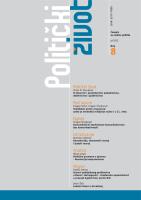
Due to the increasing importance of information and media, modern democracy is more often referred to as a „media democracy“, an „audience democracy“, or a „communicative capitalism“ – which marks a shift from „party“ democracy. The goal is to make politics fun-filled. It is a simultaneous process of the politicization of the political periphery and depoliticization of foundations of politics, which leads to the creation of a new model of political communication, or the „postpolitics“. The „new politics“ refocusses the engagement outside the parliamentary system. It is characterized by personalized rather than collective engagement and a stronger emphasis on single issues rather than on overarching ideologies. Politicians previously represented the public. They now mostly represent themselves. This leads to a „democracy without citizens“. It means that one of the reasons for the crisis of political legitimacy is the preponderance of the media policy as it makes the relationship between the representatives and the represented even more mediated, i.e. distant. Thus, power is shifted away from parliament and concentrated in the hands of specialized agencies that are unelected and unrepresentative, which, as much as multinational corporations, have „power without responsibility“.
More...
As an impact of profound change that has been occurring within the media sphere for a relatively short time, the media audience has been undergoing significant transformations and the way we use media has been altering as well. The tension between the forces of control and resistance – a desire for control and a greater and a more direct influence over the audience, and, on the other hand, the creativity of the audience and the use of hybrid media formats as tools for resistance, or at least, active participation in the production and reproduction of media content –is still relevant and adopts new forms and intensities. Therefore, even though the topic of this essay is not new, I advocate it has not lost its relevance. Moreover, the new circumstances impose new questions, demand reconsidering established theories and call for the similar empirical research to be conducted under altered conditions.
More...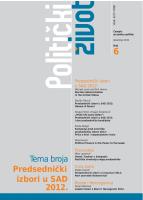
The author points out how each of the two main American presidential candidates in 2012 election campaign tended to back up their own image of a credible and qualified person and, at the same time, strengthen an incompetent image of the oponent by interpreting the predominant issue and causes of the economic crisis. In addition to the main issue, the author identifies slogans as well as various means and forms of promotion used during the campaign.
More...
Political discourse and rhetoric have always been accused of focusing more on the form than the content. Of creating illusions to people and not delivering on their promises, in particular when campaigning for political office. The article lies upon two conceptual premises, namely 1) language cannot be neutral – it reflects and structures our ideologies and world views; 2) in order to advance their agenda, politicians aim to persuade the public and other relevant audiences – political power thus derives from the power to persuade. The following text will attempt to analyse political discourse of presidential candidates in the American race for president in 2012, while sheding some light on the theory of political discourse and its analysis.
More...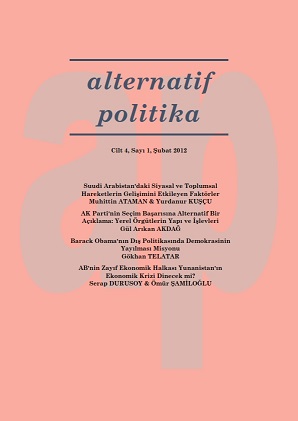
General perception in political science literature is the declining strength and functions of political parties’ local organizations due to the loosening voter/party linkage and decrease in political activism. Nevertheless, given the safe nature of a permanent voter/party linkage in affecting vote choice, in party systems with hegemonic tendencies, incumbents may use the resources at their disposal to strengthen their links with the society via their local organizations. Within this Respect, this paper is an attempt to evaluate AKP’s local branches activities and functions in understanding their role as intermediary mechanisms that enhance the voter/party linkage in the Turkish political context.
More...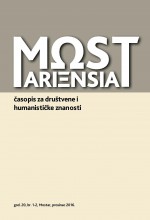
The right of access to information is the right of the new generation in the Republic of Croatia. It is covered by Art. 38 of the Croatian Constitution (Official Gazette 85/2010) which guarantees freedom of thought and expression and which includes the freedom of the press and other media of communication, freedom of speech and public expression, and free establishment of all institutions of public communication. The right of access to information has been declared in constitutional law and it has precisely regulated its scope and possible limitations. In this way, it is strengthening the transparency and legitimacy of the actions of public authorities, as well as control over it. The aim of this paper is to determine the legislative framework governing the right of access to information and to point to the question of how the legal protection of the right of access to information is regulated.
More...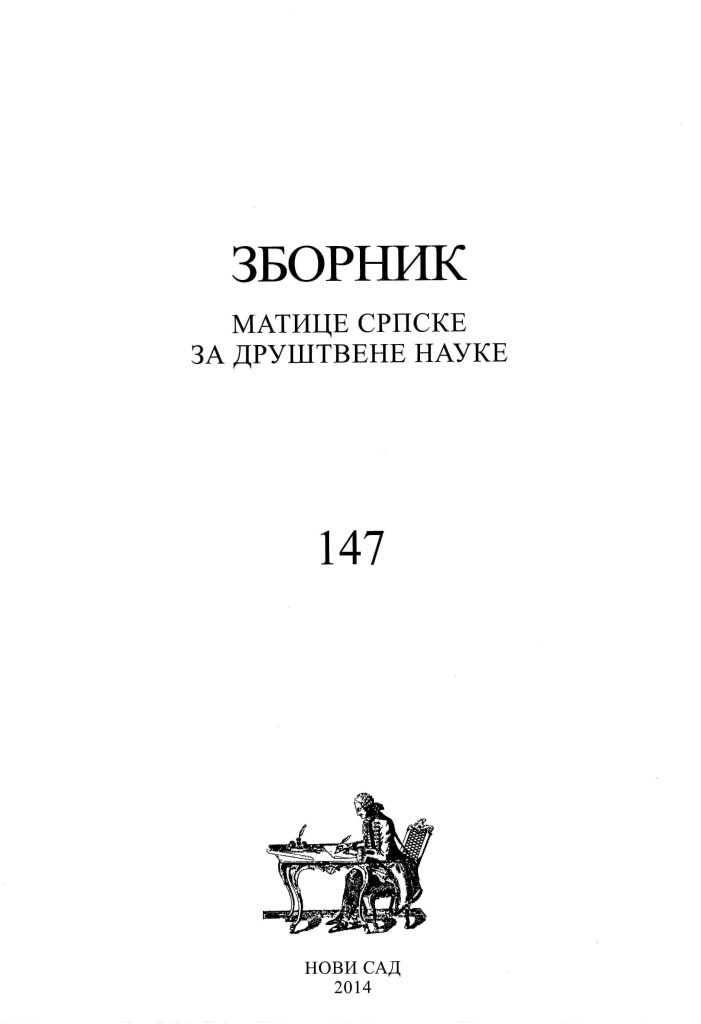
Jovan Hranilović was an important poet, literary and theatre critic. Neither his journalistic career has ever been analysed nor has any research been made about him although he worked in media as a journalist, an editor and a manager. Some authors have analyzed his role in foundation and organization of the first Novi Sad section of the Journalists’ association of Yugoslavia (JNU), which was established in 1922. Jovan Hranilović was a prominent manager and, afterwards, the first president of Jedinstvo, a daily paper famous for its informative and political reporting. He was also the most important advocate for establishing the support fund for journalists threatened by sudden illnesses or job losses. The authors have studied moral and ethical principles in journalism which he advocated as the president of the Novi Sad section of JNU, as well as how he saw the role and importance of the newspapers in the media system of the Kingdom of Serbs, Croats and Slovenes. The analysis of the texts that Hranilović published as the editor and manager of Jedinstvo enables us to determine his specific media discourse. Furthermore, we can grasp his media initiative used to promote the journalists’ association he was leading and the humanitarian activities he undertook.
More...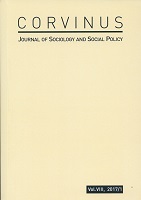
Preimplantational genetic tests (PG tests) used in the processes of reproduction under laboratory conditions are considered to be one of the most controversial fields of gene technology. These tests are performed on embryos and result in the selection of the most capable embryo, while the rest are destroyed. Numerous moral questions arise regarding the ethical application of these procedures. This study investigated the representation of this topic in the Hungarian online media, applying (qualitative) Foucauldian discourse analysis. The results suggest that the narratives related to the topic can be organized according to their subjects around three discourses: those surrounding parents, those surrounding the embryo, and those surrounding the application of PG tests. It was also revealed that narratives of risk, responsibility and the freedom of autonomous decisionmaking play an important role in constructing the representations of PG tests in the Hungarian online news media.
More...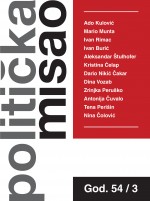
Although non-profit or third-sector media are recently a contentious and widely discussed issue in Croatia, there is hardly any knowledge about the audiences of non-profit media and their relationship towards democratic politics. Theoretical framing of the normative role of non-profit media in democracy preceeds the empirical analysis of its role for the audiences in Croatia. The size and characteristics of non-profit media audiences are described and these audiences are compared to mainstream media audiences in terms of political interest, political information consumption, trust in the media, political efficacy and political participation. Analysis is based on data gathered through survey of a representative sample of Internet users in Croatia (N=1208). Descriptive, regression, and latent class analysis showed that 26% of Internet users follow non-profit media and that non-profit media audiences in Croatia have higher political interest, political efficacy, inform themselves more and engage more in politics. Audiences of non-profit media do not differ significantly in overall media consumption and trust in the media in comparison with the mainstream media audiences. The results have implications about the democratic potential of third-sector media in Croatia, and provide insights into a possible shape of polarization of online audiences.
More...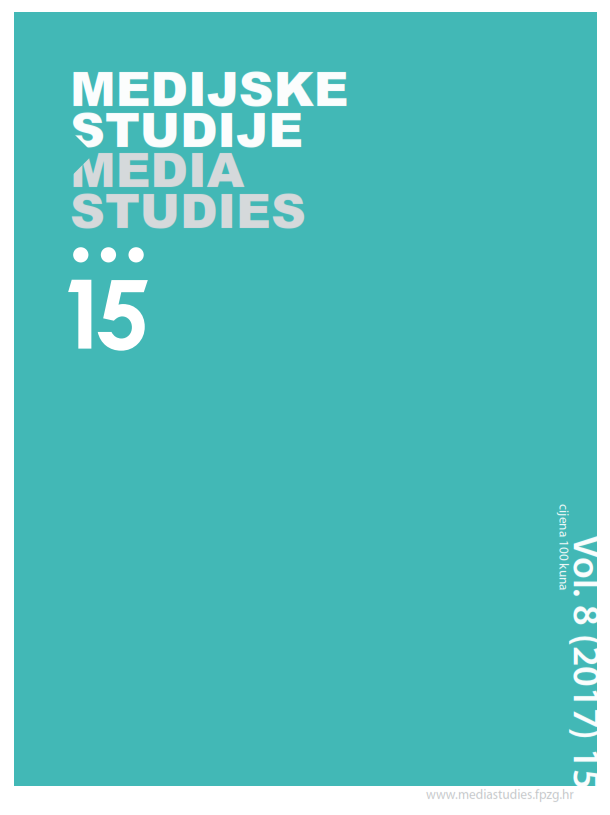
This article explores the meaning of valence-framing theory in political communication. It examines the influence of valence frames on the formation of political attitudes among the public. The valence-framing effect is derived from the information context value (positive, negative) and applies if people’s attitudes towards a certain subject match the context value of the information received. The article presents a case study of reports during the crisis of Mirek Topolánek’s government in the Czech Republic in 2009. It examines to what extent the context of the statements on the Czech news concerning the parliamentary parties Civic Democratic Party (ODS, leader Mirek Topolánek) and the Czech Social Democratic Party (ČSSD, leader Jiří Paroubek) related to the existing political attitudes of their prospective audiences. The article argues that the valence-framing effect was more evident in the public broadcasting programme Události ČT than the commercial programme Televizní noviny, a paradox which can be explained by the unique link between the attributes of the Czech media environment and the political opinions of their viewers.
More...